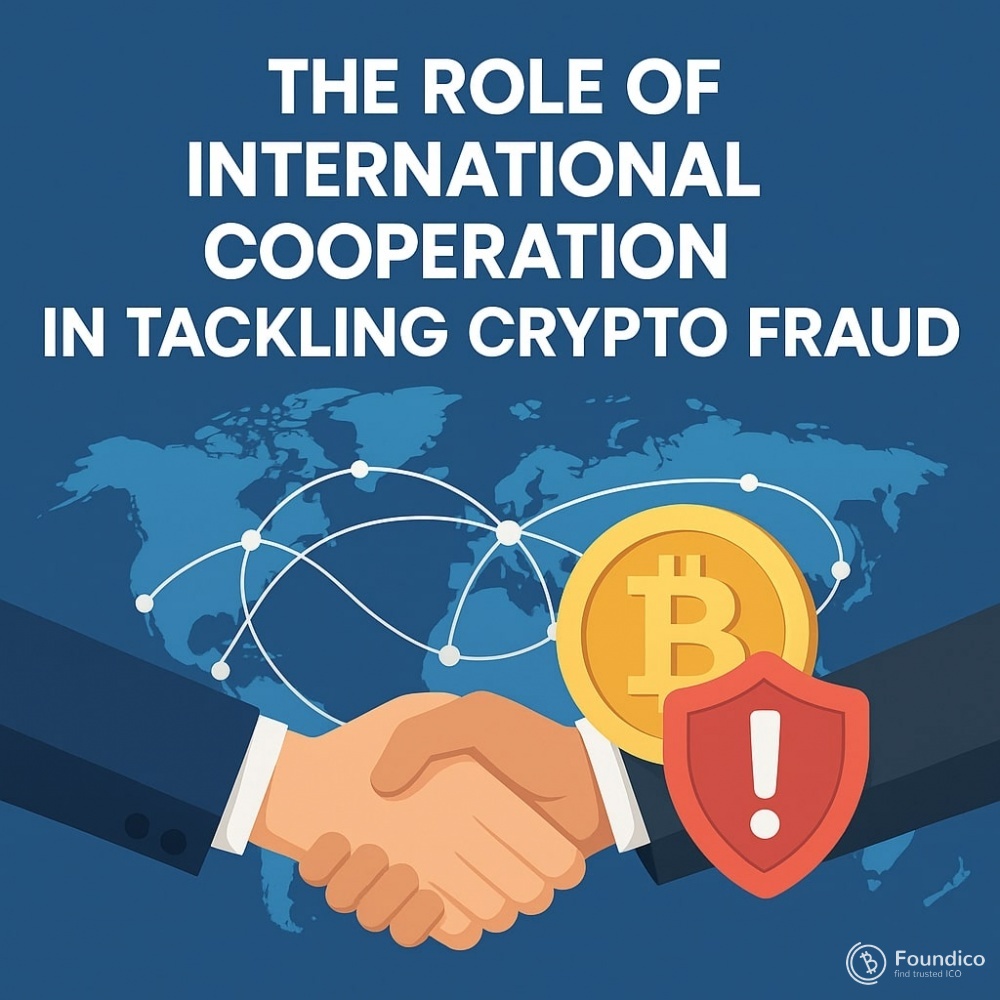The Role of International Cooperation in Tackling Crypto Fraud

By Dr. Pooyan Ghamari, Swiss Economist and Visionary
As cryptocurrencies have emerged as a transformative force in the global financial landscape, they have also introduced complex challenges—chief among them, the proliferation of crypto fraud. The decentralized, borderless nature of digital assets has created fertile ground for illicit activities that can easily transcend national jurisdictions, complicating efforts to detect, prevent, and prosecute fraudsters.
In this article, I examine why international cooperation is essential to effectively combat crypto fraud, explore current obstacles, and propose pathways for stronger global collaboration. Drawing on my expertise as a Swiss economist with a focus on global financial systems, I underscore that only through coordinated efforts can we safeguard the future of crypto innovation and protect investors worldwide.
The Global Nature of Crypto Fraud
Unlike traditional financial crimes, crypto fraud operates in a digital ecosystem without physical borders. Perpetrators can set up fraudulent exchanges or token projects in one country, solicit investors in another, and store illicit proceeds in a third jurisdiction. This fluidity complicates detection and enforcement because:
-
Legal definitions of fraud and regulatory approaches vary widely across countries.
-
Coordination among law enforcement agencies is often limited by jurisdictional boundaries.
-
Delays in information sharing can enable scammers to cover their tracks or flee.
High-profile cases have repeatedly shown how scammers exploit these gaps to evade accountability, leaving investors and regulators scrambling to catch up.
Why International Cooperation is Imperative
No single country, no matter how robust its regulatory framework, can unilaterally tackle crypto fraud effectively. The very nature of blockchain and cryptocurrencies demands cross-border collaboration for these reasons:
-
Unified Legal Frameworks: Harmonizing definitions and penalties related to crypto fraud facilitates coordinated investigations and prosecutions.
-
Information Sharing: Rapid exchange of intelligence between regulatory and law enforcement bodies helps identify emerging scams and freeze illicit assets.
-
Joint Operations: Multinational task forces can pool resources and expertise to dismantle sophisticated fraud networks that operate globally.
-
Standardized Compliance: Common standards for Know Your Customer (KYC) and Anti-Money Laundering (AML) protocols reduce the ability of fraudsters to exploit regulatory arbitrage.
Current Efforts and Challenges
Several international organizations and alliances have begun addressing these challenges:
-
The Financial Action Task Force (FATF) has issued guidance to incorporate crypto assets into AML frameworks globally.
-
Interpol and Europol have established specialized units targeting crypto-related crimes.
-
Regional bodies, such as the European Union, are moving toward unified crypto regulations.
Yet, significant obstacles remain: disparities in technological capacity, political will, and legal systems hinder seamless cooperation. Some countries remain safe havens due to lax enforcement or lack of regulation, creating loopholes scammers readily exploit.
The Way Forward: Strengthening Global Collaboration
To advance the fight against crypto fraud, the international community must:
-
Develop Clear, Harmonized Legal Standards: Countries should work toward consensus on what constitutes crypto fraud, with standardized penalties and enforcement mechanisms.
-
Enhance Real-Time Data Sharing Platforms: Secure, interoperable channels for exchanging suspicious activity reports and forensic data are critical.
-
Build Capacity in Emerging Markets: Support must be extended to jurisdictions with limited resources to implement effective crypto oversight.
-
Encourage Public-Private Partnerships: Collaboration with blockchain analytics firms, exchanges, and cybersecurity experts can amplify detection and prevention efforts.
-
Promote Transparency and Accountability: International watchdogs should monitor adherence to agreements and publicly report on progress.
Crypto fraud threatens not only individual investors but the integrity and potential of the entire digital asset ecosystem. In an environment where bad actors operate globally with ease, international cooperation is not a luxury—it is a necessity.
My vision as a Swiss economist and visionary is for a unified global front that combines legal harmonization, intelligence sharing, and technological innovation to outpace fraudsters. By embracing collective responsibility, the international community can transform crypto into a safe, transparent, and inclusive financial future for all.
Dr. Pooyan Ghamari is a Swiss economist specializing in financial systems, digital currencies, and global economic trends. He advocates for balanced innovation coupled with rigorous international safeguards in emerging markets.

 btcbulltoken - Bitcoin is the best-performing asset in history with an AAR of 230% – up more than 200 million percent since inception. Now jump on board for the ride of your life as the BTC Bull stampedes towards $250K BTC and beyond!
btcbulltoken - Bitcoin is the best-performing asset in history with an AAR of 230% – up more than 200 million percent since inception. Now jump on board for the ride of your life as the BTC Bull stampedes towards $250K BTC and beyond!